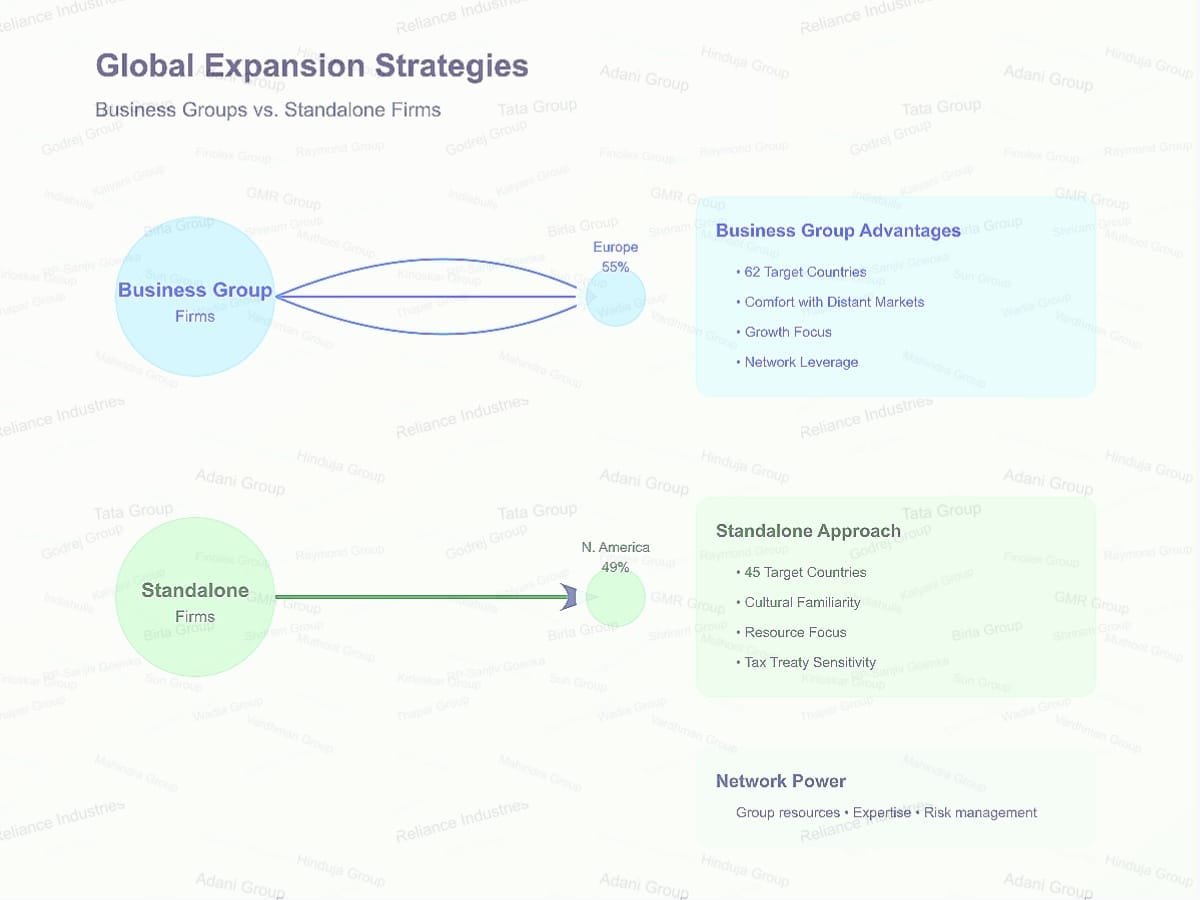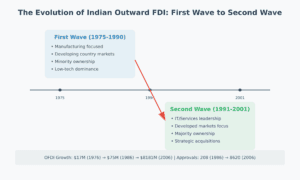The Growth Quest: Indian Companies Go Global
When Indian companies embark on international acquisitions, their organizational affiliations significantly influence their approach. New research highlights how firms affiliated with business groups (BGs) differ markedly from standalone firms in their strategies for global expansion. This distinction offers insights into the surge of cross-border deals by emerging market firms and provides valuable guidance for business strategy and policy.
A Tale of Two Approaches
The study analyzed over 800 foreign acquisitions by Indian firms between 2000-2008 and found striking differences:
Business Group Affiliated Firms:
- Cast a wider geographic net – targeted 62 countries vs 45 for standalone firms
- Favored European markets (55% of deals)
- More comfortable with distant, unfamiliar markets
- Valued growth potential and bilateral investment treaties
- Sought fuel resources and faced less cultural barriers
Standalone Firms:
- Concentrated in North America (49% of deals)
- Preferred culturally familiar markets
- Targeted ore/steel resources
- Highly influenced by tax treaties
- More cautious about distant locations
The Power of Networks
Why such different patterns? Business group affiliation provides unique advantages:
- Access to group-wide resources and expertise
- Established international networks
- Greater negotiating capabilities
- Better risk management
- Ability to leverage group reputation
Clearly being part of a business group is like having big brothers to help you navigate unfamiliar territory.
Strategic Implications
For Companies:
- Standalone firms should focus on markets with strong institutional frameworks
- BG firms can leverage group capabilities for bolder expansion
- Consider cultural factors based on organizational structure
- Align acquisition strategy with firm capabilities
For Policymakers:
- Target investment treaties based on firm profiles
- Provide extra support for standalone firm internationalization
- Consider business group dynamics in policy design
- Focus tax treaties on standalone firm needs
Looking Ahead
The research suggests business groups will continue driving cross-border expansion from emerging markets, but through an increasingly sophisticated lens. While standalone firms take a more focused approach, both models can succeed with the right strategy.
Thus, it’s not about better or worse – it’s about understanding your strengths and limitations. Business group firms can spread their wings wider, while standalone firms benefit from flying in formation.
Academic Abstract:
This study examines the determinants of host-location of cross-border acquisitions by Indian Business Group (BG)-affiliates and other firms during 2000–2008. Our empirical estimates indicate the general attraction of host country market-size and double-taxation-avoidance treaty. However, unlike the standalone firms, the acquisition-location of BG-affiliates is favourably influenced by the host growth rate and bilateral investment treaty, apparently drawn to distant nations, and not significantly affected by the cultural proximity. The host’s share of home exports affects relatively more the acquisition-location of standalone firms. Thus the derived resources/ parental networks of BG-affiliated emerging market multinational enterprises influence their outward-FDI locational pattern.
Learn More:
Full citation: Pradhan, Jaya Prakash and Neelam Singh (2011), ‘Business Group Affiliation and Location of Indian Firms’ Foreign Acquisitions’, Journal of International Commerce, Economics and Policy, 2(1), pp. 19–41, Publisher: World Scientific Publishing Co.
Learn More:





































